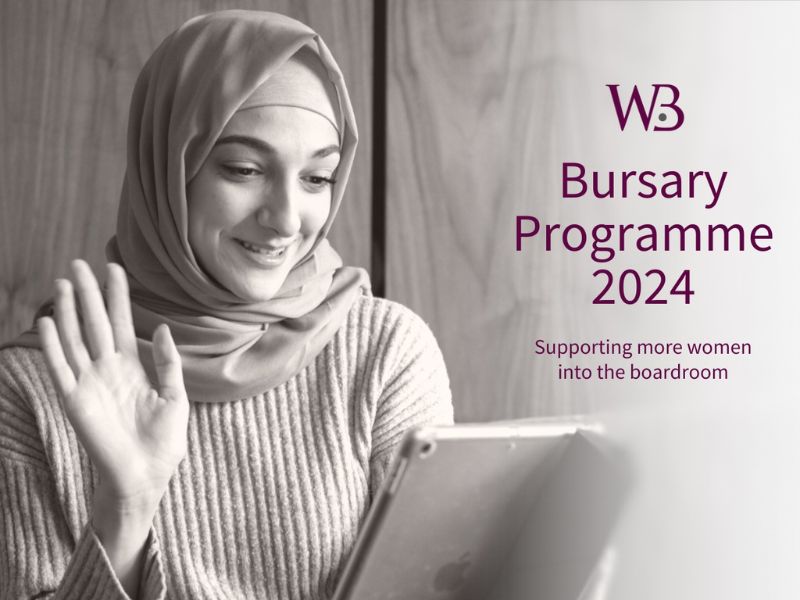
The need for greater gender diversity in the workplace has been front of mind for organisations like BP for a considerable amount of time.
We’re making progress, but not at the pace we’d like to see.
It’s an issue that has not only gained the attention of the boardroom, but has become a topic discussed around dinner table, even more so following the rise of the #metoo movement and introduction of Gender Pay Gap reporting legislation in the UK in 2017.
Recent research also highlights challenges other minorities face at work. We’re pleased at the progress we’re making here in BP, having been recognised in Business in the Community’s best employers for race listing. However there’s more to do, with some UK studies suggesting that Black, Asian and minority ethnic employees miss out on up to £3.2bn a year in pay compared to white colleagues doing the same work. Employees from underprivileged socio-economic backgrounds also face a gap, with working-class women typically earning £7,500 less annually than upper middle class women in the same professions. A common thread here is a lack of representation at senior levels for minority groups.
The challenges companies like my employer BP face in closing these gaps are complicated. However, one obvious intervention is to recruit more diversely at every level. We’ve made good progress with graduate recruitment, with our hiring gender split now around 50/50. We’re working to replicate this balance across all levels of recruitment. Another intervention is ensuring all our people have equal opportunities to progress through the organisation. This is key if we’re going to achieve gender balance, particularly at senior levels. So what are the challenges, and how are we overcoming these?
A key challenge when it comes to progression is ensuring women, and employees from minority groups, have access to senior-level sponsorship. It’s something I do personally and it’s also part of the collegiate culture here at BP. Importantly, sponsorship has been part of our formal talent review process for the last three years. In our global talent system, every high-potential male or female should have a sponsor who will help expand perceptions of what people can do, provide stretch opportunities and connections and give frank feedback.
I can’t stress enough the importance of having someone to talk to about your career. Someone who gives you guidance, puts interesting work your way, and supports you when things get difficult. It’s especially important for women, as we have a tendency to think “if I put my head down and work hard, I’ll get recognition” – which does not always happen. Fortunately at BP, I have been pleasantly surprised by how many people happily provide guidance and advice. Our culture lends itself to sponsorship, but we need to ensure we’re flexing that muscle for everybody. Organisations can certainly be more proactive about offering sponsorship opportunities to those who may not naturally seek it out.
Another enabler for retaining female staff and ensuring progression is – at risk of stating the obvious – flexible working. This is not a gender issue; flexibility allows people to find a balance between personal and professional responsibilities inside and outside work. Our internal surveys show that those who work flexibly report higher engagement and increased motivation and that our managers in the UK have a tendency to support those who want to work flexibly.
However, flexible working is not a silver bullet, especially if some employees encounter prejudices for choosing to work flexibly. To energise and retain staff, flexibility needs to be accompanied by a company-wide culture of inclusivity. It’s all very well having a diverse workforce, but if you don’t listen to or include them, what’s the point? The business will fail to get the most out of the varied perspectives people from different backgrounds offer, and it doesn’t help the individual to progress either.
For a company to truly become inclusive, we need to learn to value difference. As a leader, it’s about listening to and seriously considering thoughts that don’t match your worldview. Really valuing difference can be uncomfortable, time-consuming and frustrating at times, but the results it generates speak for themselves.
Sometimes being made to feel uncomfortable is a good thing. At BP we recently ran an internal campaign shining a spotlight on respect and inclusion. We encouraged employees globally to share stories about things that make them feel included or excluded. Early results show great successes in terms of giving leaders the impetus and opportunity to start having these conversations with their teams, and giving people the safe space to talk about their experiences at work
In 2018, as part of our annual employee engagement survey, we also introduced inclusion-specific questions. The high-level results are encouraging: our global average for people feeling included is 74%. While this indicates a pretty inclusive culture, there is more work to be done, as this average masks variations across teams. As inclusion facilitates diversity and unlocks talent, we see this type of measurement as key to tracking our progress.
The world has come a long way – especially in the past five years – to embrace greater diversity and inclusion, but we still have work do. What it boils down to for me, is having an approach to talent management and flexibility that challenges people’s assumptions. I’m talking about classic preconceptions, like assuming that flexible workers, or females with young children, are not ambitious. That’s why I think sponsorship and inclusion are so valuable; they help us to get to know our people better, to understand what they really want.
As we approach International Women’s Day 2019, and this year’s theme of #BalanceForBetter, it is my belief that we should seek to listen to a different perspective every day, ideally something that makes us feel out of our comfort zones. Listening to more voices can lead to more balanced perspectives and this, in turn, will lead to better business decisions and much more fun and success at work.
 About the author
About the author
Lucy Knight is HR VP, Corporate Business Activities & Functions at BP, based in London. Her extensive HR career of over 20 years spans a number of different sectors, including public transport, FMCG, engineering and pharmaceuticals.
At BP, Lucy is responsible for leading the HR team which supports BP’s corporate businesses & functions, including Legal and Finance, through to Group Technology, BP Shipping, and BP’s Global Business Services centres. She also leads BP’s Diversity and Inclusion Centre of Expertise and is responsible for the co-ordination and delivery of BP’s D&I agenda.
Lucy has a BSc in Human Sciences from UCL and an MSc in Industrial Relations and Personnel Management from the LSE.
Lucy is married to Stephen and has two teenage children – Elinor and Charlie. She enjoys ski-ing, art history, spending time with family and friends, jogging, Pilates and travelling.








